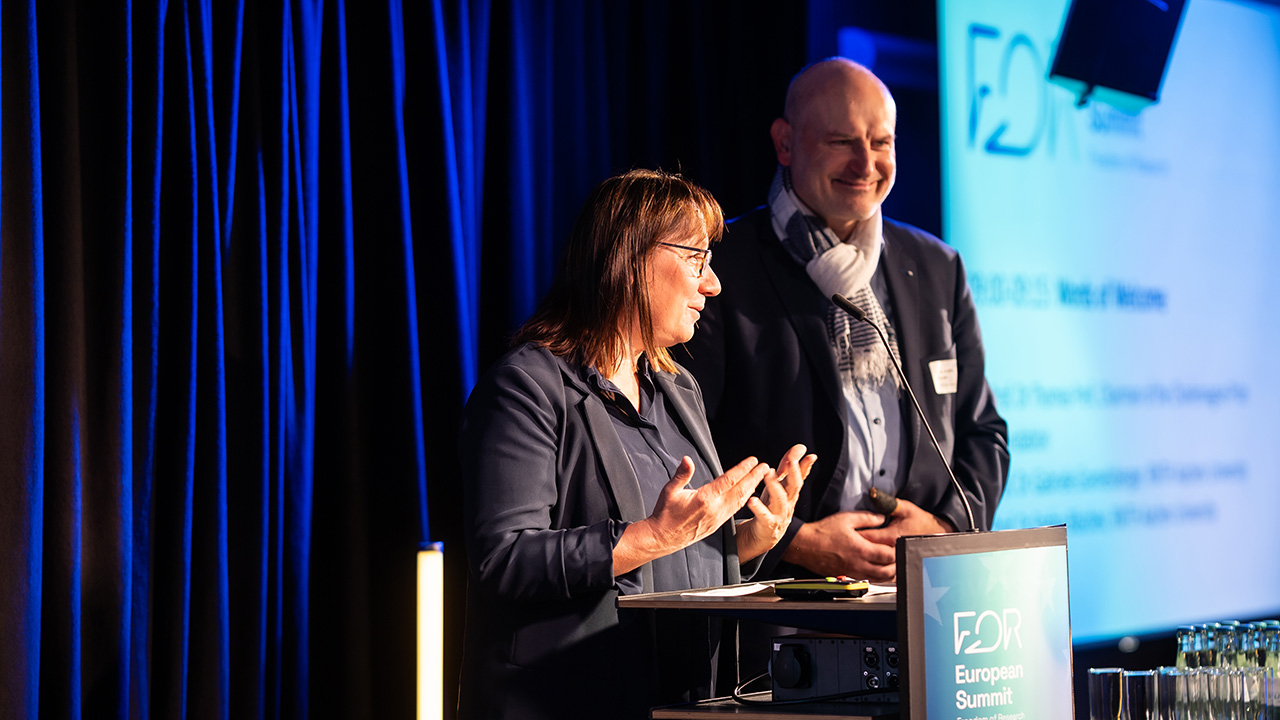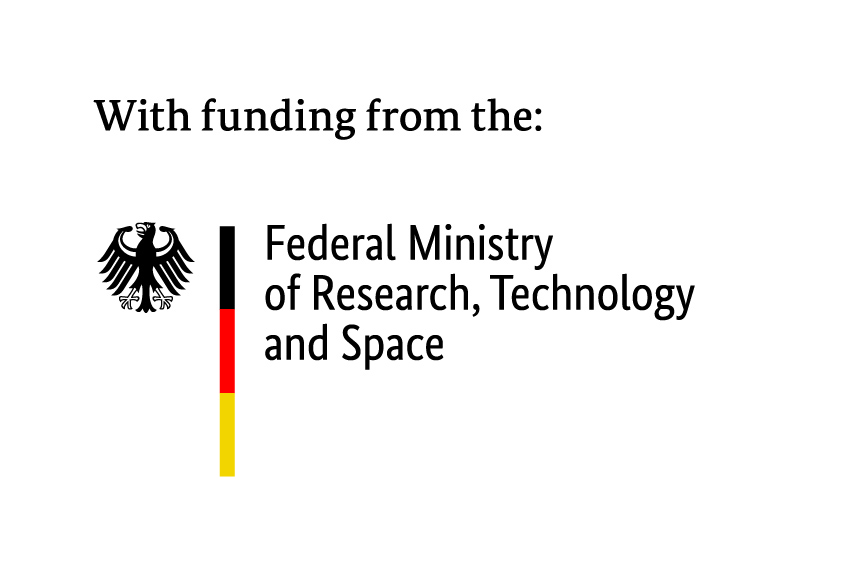On November 5 and 6, 2025, the second edition of “Freedom of Research: A European Summit” will take place in Aachen. This year’s focus topic is “Europe in Times of Division.”
In an era of political tensions and division, academic freedom is under increasing pressure. How can Europe protect itself against threats to science, including disinformation, political interference, and social division? During the summit, we want to discuss ways to uphold shared values, safeguard scientific exchange, and strengthen trust in European institutions. We also aim to explore ways to foster academic freedom and democracy across Europe. Together with scholars, policymakers, and artists, we will address these questions through various formats. The event is jointly organized by the Charlemagne Prize Foundation, RWTH Aachen University’s Knowledge Hub, and c:o/re.
Before the start of the summit, the KHK c:o/re directors Gabriele Gramelsberger and Stefan Böschen discuss the urgent matter of academic freedom and share their expectations for the event in light of the challenges that educational institutions face.
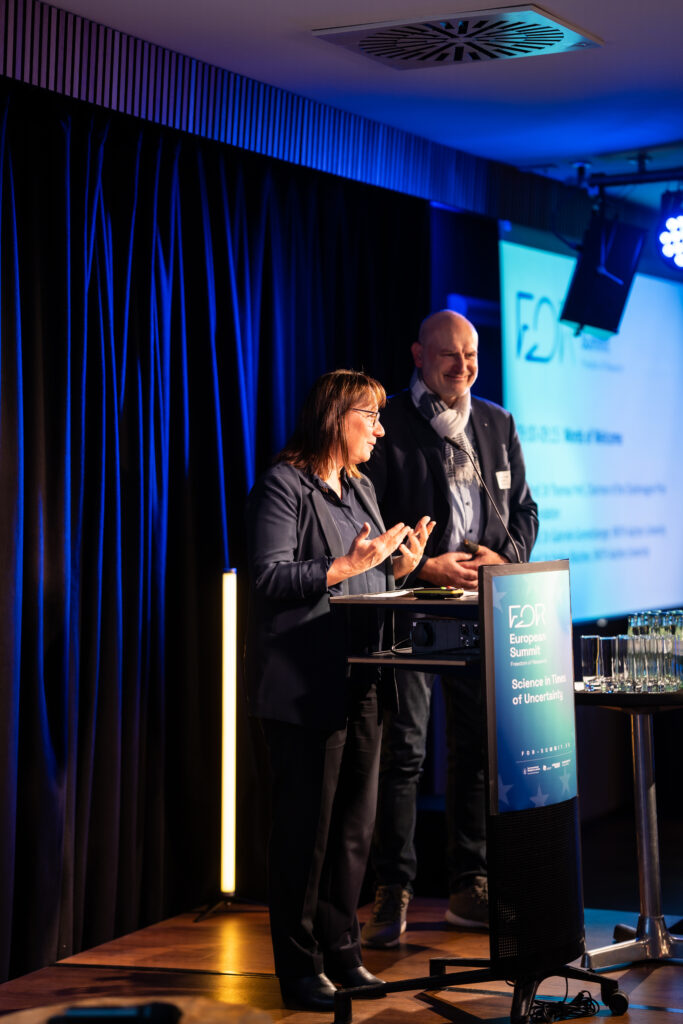
How do you view academic freedom in relation to c:o/re’s research interests?
The question of academic freedom acts as a seismograph for current processes of change in the production of scientific knowledge. Of course, we are initially confronted with right wing attacks on the institution of universities. But this should not distract us from the more hidden forms of restriction on freedom of research, such as the forced commercialization of research or the digitalization of research and its side-effects on freedom of research. We examine the varieties of these threats as changes in cultures of research.
How would you classify the freedom of research and science in Germany and Europe?
At the moment, the situation in Germany is still basically good, although we must remain alert here too. However, we are already observing significant restrictions in various European countries (think of Hungary). Budget problems are also intensifying in Germany, and since the higher education system is organized across the German federal states and the austerity measures are poorly synchronized, this could lead to more or less significant upheavals. To put it pointedly, this may raise the question of which disciplines will continue to be protected and which will be deemed expendable.
What dangers do you see, and which developments do you consider dangerous?
Academic freedom can be restricted by a wide variety of political interventions. It is precisely the diversity of possible points of intervention that leads to a lack of clarity regarding the potential threats to academic freedom. This is what makes the current situation particularly dangerous, because it increases the likelihood that influences that may later prove decisive will not be recognized at the moment when the decisions are taken.
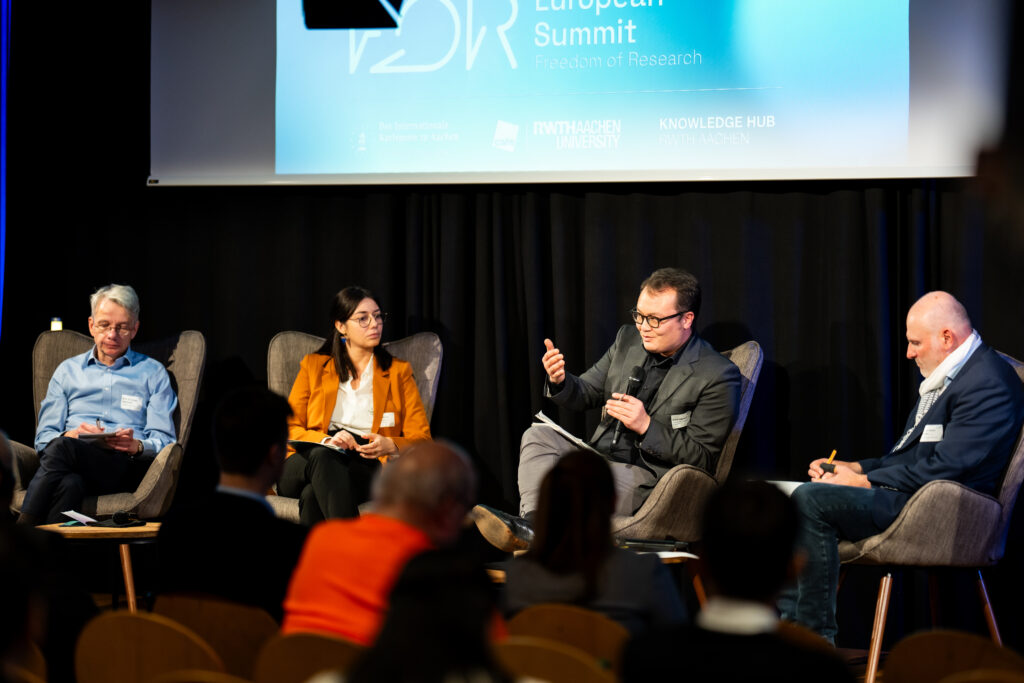
How can science protect itself from targeted disinformation and political influence?
On the one hand, this question is easy to answer because scientific independence still applies for many scientific endeavors. However, this independence is already coming under pressure because, for reasons that are initially understandable, such as the need for science to be relevant, research is oriented toward specific goals and is therefore restricted. The boundaries here are sometimes very fluid. And this is precisely what makes the issue so problematic.
In times of division, how can common values be preserved, scientific exchange secured, and trust in European institutions strengthened?
Open dialogue is the only way to achieve political goals and decisions. Isolation, exclusion, and radicalization of debates are the wrong approach. Freedom requires respect and mutual recognition. Furthermore, European values such as freedom, democracy, access to education, human-centered politics have to be protected against attacks. This is also a task of institution-building respectively their further development.
How can divisions be overcome and bridges be built within and outside academia, between social groups, and between politics and science?
This is a very complex question. That is why it may be worth considering only one seemingly paradoxical point. With Executive Order 13985, the Biden administration sought to strengthen diversity in universities. This led to the establishment of strong diversity units at universities and restricted the meritocratic principle of science. It also gave Trump a very welcome opportunity to intervene even more deeply in academic freedom in order to reverse this policy. When considering protective measures, one should always consider the possible undesirable consequences.
What are your hopes for the summit?
This time, we are hoping for two things in particular. First, we would like to gain insights that will enable us to better assess where and why academic freedom is under particular pressure. Second, we hope that a comparative perspective across different regions of the world will teach us something about the respective cultural and institutional conditions that shape freedom of research.
What is the KHK’s interest in the joint event with the Charlemagne Prize Foundation and the Knowledge Hub?
This cooperation provides an outstanding opportunity to create a space for reflection on these issues, in which very different actors can engage in dialogue. And in view of the Charlemagne Prize Foundation’s guiding principle of promoting the idea of Europe as an open and liberal society, it is crucial to focus on this important institution for the development of democracies. If we want to continue to develop Europe democratically, then it must be the concern of all responsible actors and citizens to work to safeguard freedom of research and to explore appropriate ways of doing so together.
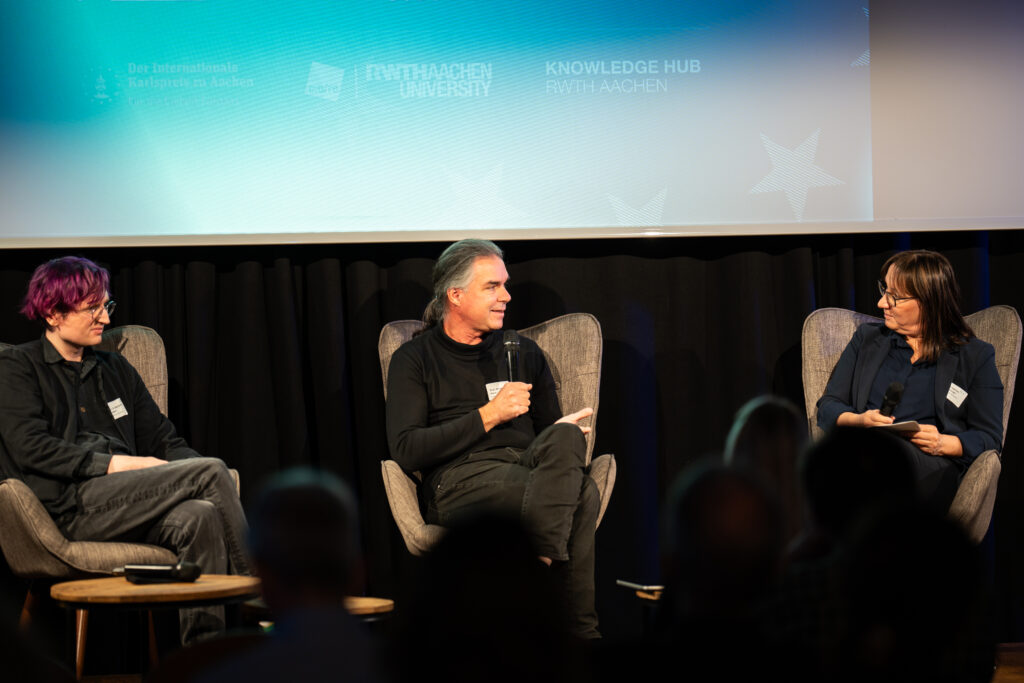
For more details, including a list of speakers and the full program, please visit the event website.
To register, please follow this link.
To get an idea of what the last summit was like, take a look at this and this blog posts.
Photo Credits: Christian van’t Hoen

